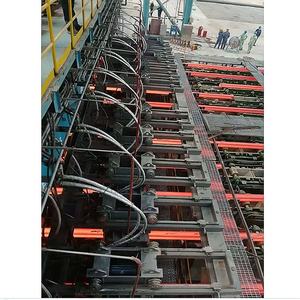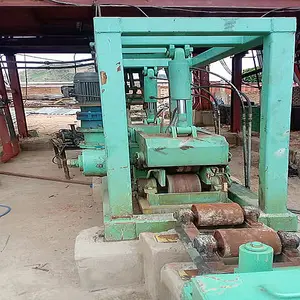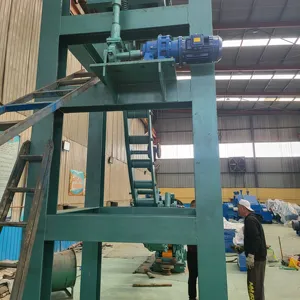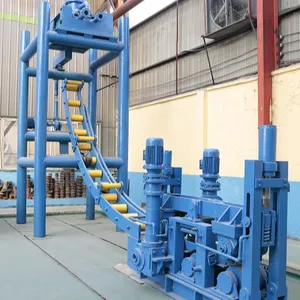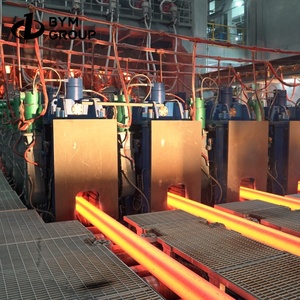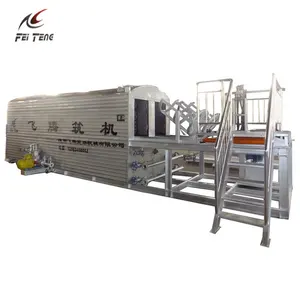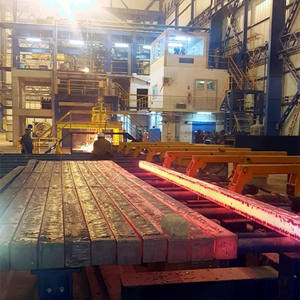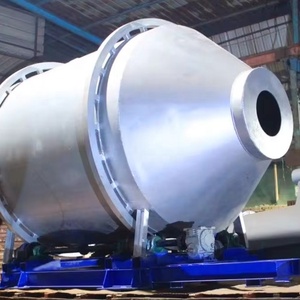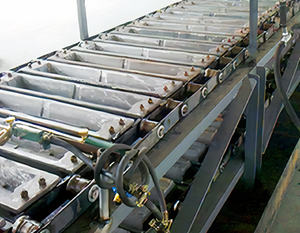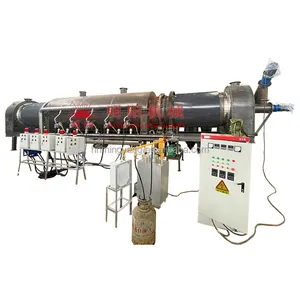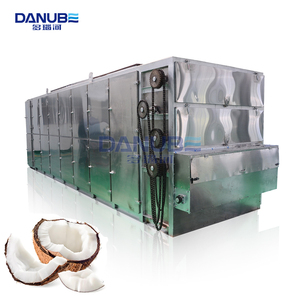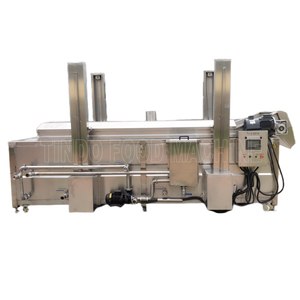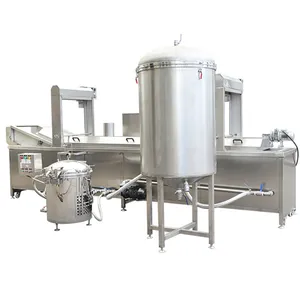What Is Continuous Production
 Top sponsor listing
Top sponsor listing



























 1/14
1/14



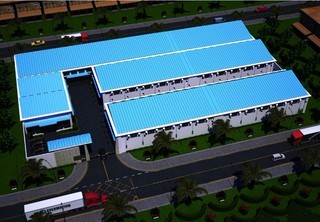







 1/21
1/21




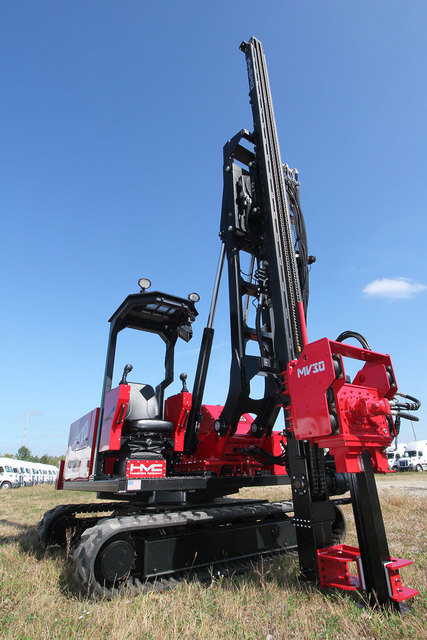




 1/25
1/25
About what is continuous production
What Is Continuous Production?
Continuous production refers to an industrial manufacturing process where materials are processed in a constant, uninterrupted flow rather than in discrete batches. This method is widely used in industries requiring high-volume output and consistent product quality, such as metallurgy, chemicals, food processing, and construction materials. By maintaining steady operational conditions, continuous production systems achieve greater energy efficiency, reduced labor costs, and minimized material waste compared to batch processing.
The core advantage lies in automation and integration—raw materials enter one end of the line, undergo sequential transformation stages (melting, forming, cooling, cutting), and emerge as finished products at the other end with minimal human intervention. Typical applications include continuous casting machines for metal billets, rotary carbonization furnaces for biomass, asphalt drum plants, and wire rod rolling lines. These systems often operate 24/7 with scheduled maintenance downtimes, enabling annual outputs exceeding tens of thousands of metric tons.
Where Are Continuous Production Equipment Suppliers Concentrated?
China remains the dominant global hub for continuous production machinery manufacturing, with key supplier clusters located in Hebei, Shandong, and Henan provinces. Tangshan in Hebei Province hosts specialized metallurgical equipment manufacturers benefiting from proximity to major steel-producing centers, allowing tight integration between equipment design and real-world operational demands. Suppliers in this region focus on heavy-duty casting and rolling systems with robust engineering support.
Singapore-based exporters like Danube Machinery Equipment source from Chinese OEMs but offer international compliance alignment and English-language technical documentation, catering to Southeast Asian, African, and Middle Eastern markets. Meanwhile, Dezhou in Shandong has emerged as a center for road construction and chemical processing equipment, leveraging regional supply chains for boilers, heat exchangers, and automated control systems. The geographic clustering enables rapid prototyping, cost-efficient component sourcing, and streamlined logistics for containerized shipping.
How to Choose Continuous Production Equipment Suppliers?
Selecting reliable suppliers requires systematic evaluation across technical, operational, and transactional dimensions:
Technical Compliance & Design Validation
Verify adherence to recognized standards such as ISO 9001 for quality management. For export markets, confirm CE marking or equivalent safety certifications applicable to mechanical and electrical components. Request detailed P&ID diagrams, 3D layout models, and PLC control schematics to assess engineering rigor. In metallurgical applications, validate mold-level control systems, secondary cooling configurations, and strand withdrawal mechanisms.
Production Capacity Assessment
Evaluate infrastructure indicators that reflect scalability:
- Minimum factory area of 5,000m² to support full assembly lines
- In-house machining capabilities (CNC lathes, welding bays, hydraulic testing)
- Dedicated R&D teams focused on process optimization and energy efficiency improvements
Cross-reference delivery performance (target ≥98% on-time rate) with order volume history to gauge capacity stability.
Transaction Security & After-Sales Support
Utilize secure payment structures such as irrevocable LC or third-party escrow until commissioning is completed. Prioritize suppliers offering remote monitoring integration, multilingual manuals, and field technician deployment for startup assistance. Confirm availability of spare parts inventories and response times for service requests—ideally under 72 hours globally.
What Are the Leading Continuous Production Equipment Suppliers?
| Company Name | Location | Main Products | On-Time Delivery | Avg. Response | Key Product Examples | Price Range (Min Order) |
|---|---|---|---|---|---|---|
| Tangshan Fengrun District Runhao Rolling Machinery Co., Ltd. | Tangshan, CN | Rolling Mills, Metal Casting Machinery, Industrial Furnaces | 100.0% | ≤4h | Metal Straightening Machinery, Processing Lines | $50,000–200,000/set |
| Tangshan Bohai Metallurgy Intelligent Equipment Co., Ltd. | Tangshan, CN | Metal Casting Machinery, Continuous Casting Machines | 100.0% | ≤6h | Square/Round Billet CCM, Mold Level Control Systems | $135,000–275,000/strand |
| DANUBE MACHINERY EQUIPMENT (SINGAPORE) PTE. LTD. | Singapore | Carbonization Furnaces, Drying Equipment, Waste Treatment | Not specified | ≤2h | Rotary Carbonization Plants, Mesh Belt Dryers | $17,000–48,000/set |
| Dezhou Feiteng Road Construction Equipment Co., Ltd. | Shandong, CN | Asphalt Mixers, Bitumen Plants, Chemical Tanks | 100.0% | ≤1h | Drum-Type Bitumen Plants, Corrosion-Resistant Steel Lines | $32,300–100,000/set |
| Beijing Orient Pengsheng Tech. Co., Ltd. | Beijing, CN | Copper/Aluminum Rod Production Lines, Cable Equipment | 100.0% | ≤7h | Induction Heating Systems, Continuous Casting-Rolling Machines | $145,000–350,000/set |
Performance Analysis
Tangshan-based firms dominate metallurgical continuous casting solutions, offering fully integrated designs validated by 100% on-time delivery records. Beijing Orient Pengsheng specializes in non-ferrous metal production lines with advanced induction heating and oxygen-free processing, targeting high-purity conductor manufacturing. Dezhou Feiteng leads in mid-range bitumen and chemical processing systems, combining automation with competitive pricing. Danube Machinery provides entry-level carbonization and drying systems suitable for emerging market applications, emphasizing fast communication and modular design. Buyers should prioritize suppliers with documented process stability, responsive technical support, and proven export experience when procuring capital-intensive continuous production systems.
FAQs
What are typical MOQ and lead times for continuous production lines?
Minimum order quantity is typically 1 set or 1 strand. Lead times range from 30 to 60 days after deposit confirmation, depending on customization level. Standard configurations ship within 30–40 days; engineered-to-order systems may require up to 90 days.
Can continuous production equipment be customized?
Yes, most suppliers offer configuration options including capacity (tons/hour), automation level (PLC/HMI brands), fuel type (gas/electric), and integration with upstream/downstream processes. Custom engineering usually adds 15–25% to base pricing.
Do suppliers provide installation and training?
Reputable manufacturers offer remote guidance as standard. On-site commissioning and operator training are typically available at additional cost, ranging from $150–300 per technician/day plus travel expenses.
What quality assurance measures should buyers request?
Demand factory acceptance tests (FAT) with video documentation, material test reports (MTRs) for critical structural components, and proof of load testing for drive systems. For electrical panels, verify IP ratings and insulation resistance testing results.
How is global shipping handled for large-scale equipment?
Equipment is disassembled into modules, crated, and shipped via FCL (full container load) sea freight. Suppliers typically quote FOB terms; buyers arrange destination port handling and final assembly. Oversized components may require flat-rack containers or break-bulk shipping.




